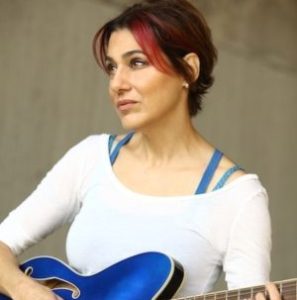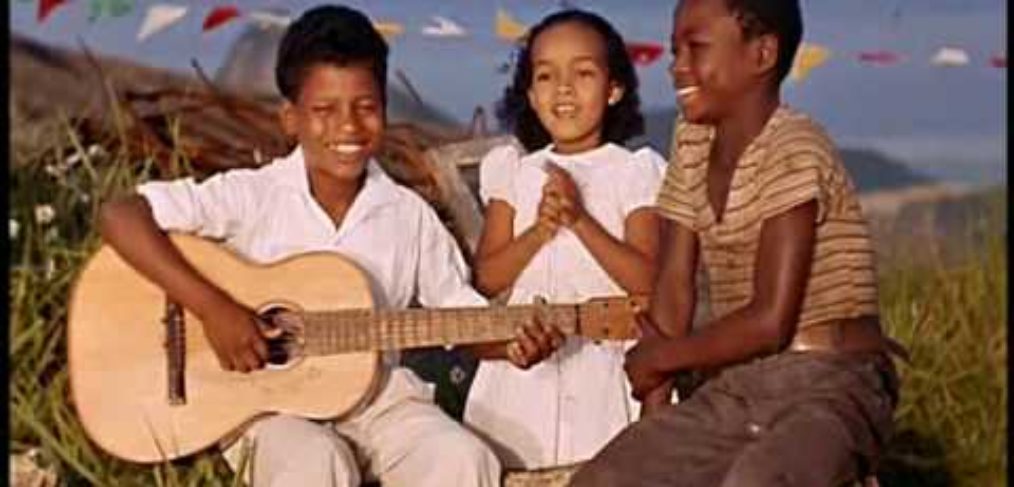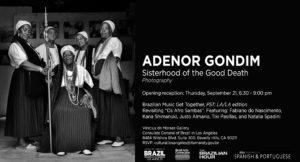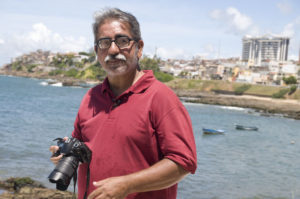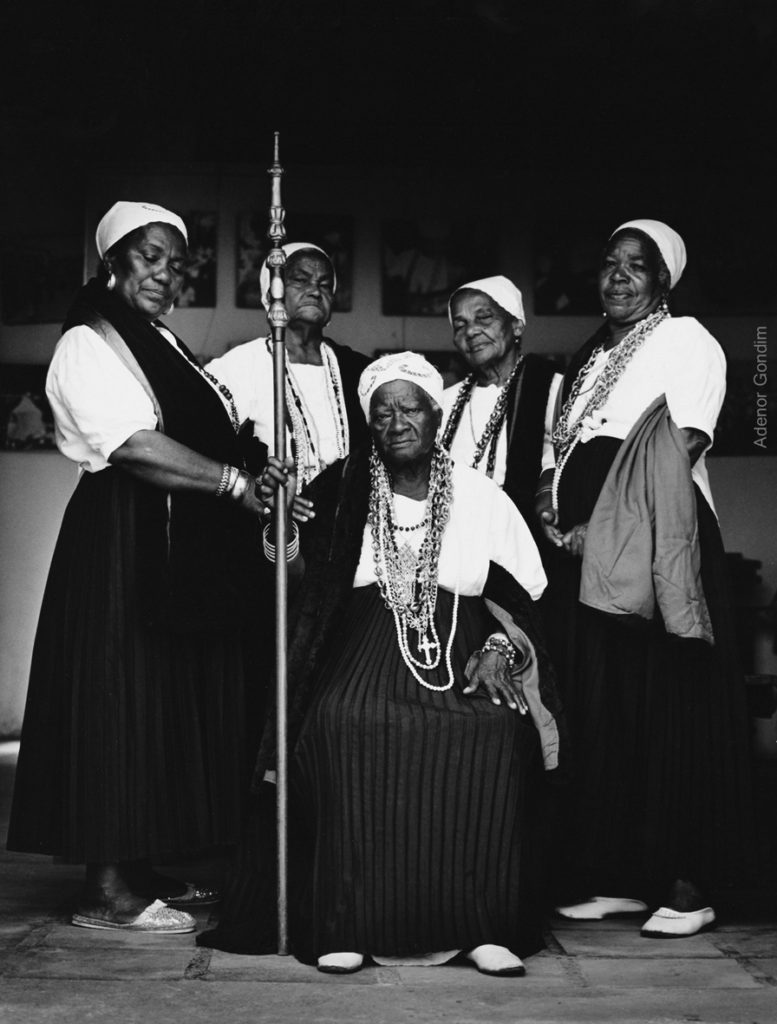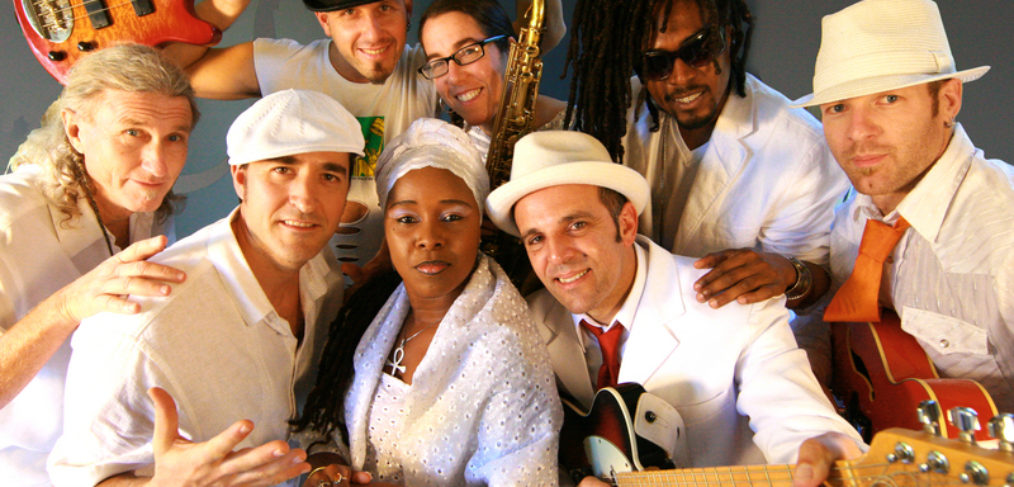Orfeu Negro – Black Orpheus is one the most influential films related to Brazil by the French director Marcel Camus. The main actors were Marpessa Dawn and Breno Mello. The film is based on the original play Orfeu da Conceição by Brazilian poet, diplomat and singer, Vinicius de Moraes. Orfeu is an adaptation of the Greek legend of Orpheus and Eurydice and this time set in a favela, shantytown in Rio de Janeiro during the carnaval festivities. The film, made in 1959 as co-production of Brazil, France, and Italy became an international success winning the Palme d’Or at the Cannes Film Festival in 1959, the 1960 Academy Award for Best Foreign Language Film, 1960 the Golden Globe Award for Best Foreign Film and the 1961 British Academy Film Awards. The film inspired people, artists, and musicians the world over. The fine artists Jean Michel Basquiat mentions the music of Black Orpheus to have been one his first musical influences. It was Barack Obama’s mother’s favorite film. The soundtrack of the film and some of it’s themes were recorded by numerous musicians and singers like Vince Guaraldi, Paco de Lucia, Al Di Meola & John McLaughlin, Astrud Gilbeto, Bola Sete, João Gilberto, Gal Costa to name a few.
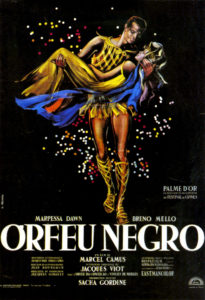
The actors:
Marpessa Dawn was not from Brazil, but Pittsburg, Pennsylvania.[5]
Breno Mello was a soccer player with no acting experience at the time he was cast as Orfeu. It is said that Breno Mello was walking on the street in Rio de Janeiro, when director Marcel Camus stopped him and asked if he would like to be in a film.
Da Silva, the actor who played Death, was a triple jumper who won two Olympic gold medals, in 1952 and 1956.[8]
A young boy who dances across the screen playing pandeiro (tambourine) and flying a kite grew up to win a national pandeiro-playing contest and play his instrument around the world. Currently, Carlinhos Pandeiro de Ouro teaches in Los Angeles and performs with local Brazilian groups.
The soundtrack became an enormous success; it was the beginning of the Bossa Nova movement in Brazil and the world. Two young Brazilian composers wrote the music, Antonio Carlos Jobim also known as Tom Jobim whose song “A Felicidade” opens the film and Luiz Bonfá whose “Manhã de Carnaval” and “Samba de Orfeu” have become Bossa Nova classics. The songs sung by the character Orfeu were dubbed by singer Agostinho dos Santos and the female voice by Elizeth Cardoso.
It is interesting to note that it was Elizeth Cardoso who recorded the first Bossa Nova album titled “Canção do Amor Demais” released in Brazil in 1958.
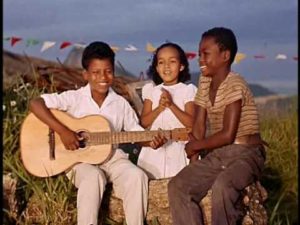
Orfeu da Conceição the play by Vinicius de Moraes premiered in Rio de Janeiro in 1956 and it became the basis for the film and the musical Orfeu presented on Broadway.
Antônio Carlos Brasileiro de Almeida Jobim was born in Rio de Janeiro on January 25, 1927. Tom Jobim was a pianist, songwriter, arranger, and singer. Widely considered as one of the great exponents of Brazilian music, Jobim is the artist who internationalized Bossa Nova and, with notable American artists, he merged Bossa Nova with jazz to standardize in the 1960s a new sound whose popular success was very remarkable. Jobim is widely considered one of the great composers of popular music of the twentieth century.
He was a primary force behind the creation of the Bossa Nova style, and his songs have been performed by many singers and musicians within Brazil and internationally.
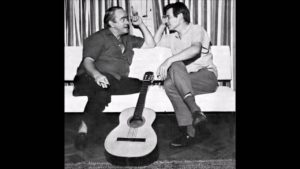
Jobim became prominent in Brazil when he joined forces with poet and diplomat Vinicius de Moraes to write the music for the play Orfeu da Conceição in 1956. The most popular song from the show was “Se Todos Fossem Iguais A Você” (“If Everyone Were Like You”). Later, when the play was turned into the film: Black Orpheus”, producer Sacha Gordine did not want to use any of the existing music from the play. Gordine asked Vinicius de Moraes and Tom Jobim for a new score for the film. Vinicius Moraes was at the time away in Montevideo, Uruguay, working for the Itamaraty (Ministry of Foreign Relations of Brazil) and so he and Jobim were only able to write three songs, primarily over the telephone – songs such as “A Felicidade”, “Frevo” and “O Nosso Amor.” This musical partnership became very successful.
One of their most famous compositions is “The Girl from Ipanema.” Jobim’s compositions have been recorded by legendary singers and musicians such as Ella Fitzgerald, Frank Sinatra, Oscar Peterson, Herbie Hancock, Chick Corea, Toots Thielemans to name a few.
Jobim was an innovator in the use of sophisticated harmonic structures, simple beautiful melodies in popular song.
Vinicius de Moraes, born in Rio de Janeiro in 1913, was known as “poetinha” – a term of endearment meaning the little poet. Vinicius’ venture into writing started in the 30’s when he wrote two poetry collections, “Caminho Para a Distancia (“Path into Distance”) (1933) and Forma e Exegese (“Form and Exegesis”). In 1943 Vinicius de Moraes entered the Brazilian Foreign Service working at the Brazilian Consulate in Los Angeles. He continued writing and releasing several books, such as Caminho Para a Distancia (“Path into Distance”) (1933) and Forma e Exegese (“Form and Exegesis”). As a diplomat, he also served in Paris and in Rome. In the 50’s Vinicius de Moraes wrote film reviews for the newspaper “A Última Hora.” In 1956 he returned to Paris as a diplomat and co-wrote his first samba “Quando tu passas por mim” (“When You Go By Me”) with Antonio Maria, a writer, chronicler and radio personality.
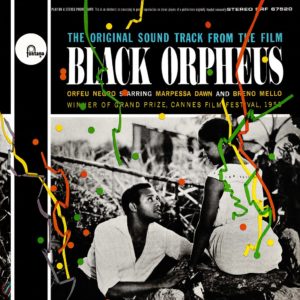
In 1956 Vinicius de Moraes met pianist Antonio Carlos Jobim and started writing songs that later became known as Bossa Nova. In 1958 singer Elizeth Cardoso records the album “Canção do Amor Demais” with several compositions by Vinicius and Tom. Many consider it to be the first Bossa Nova album. Songs by Vinicius de Moraes and Tom Jobim were all-time hits recorded by numerous singers and musicians worldwide such as “Garota de Ipanema” (The Girl From Ipanema).
Luiz Bonfá was born on October 17, 1922, in Rio de Janeiro. Bonfá studied in Rio with Uruguayan classical guitarist Isaías Sávio from the age of 11.
Bonfá first gained widespread exposure in Brazil in 1947 when he was featured on Rio’s Radio Nacional then an important showcase for up-and-coming talent. He was a member of the vocal group Quitandinha Serenaders in the late 1940s. Some of his first compositions such as “Ranchinho de Palha”, “O Vento Não Sabe”, were recorded and performed by the Brazilian famed crooner Dick Farney in the 1950s. Bonfá’s first hit song was “De Cigarro em Cigarro” recorded by singer Nora Ney in 1957. It was through Farney that Bonfá was introduced to Tom Jobim and Vinicius de Moraes. Bonfá collaborated with Tom and Vinicius and with other prominent Brazilian musicians and artists in productions of the anthological play Orfeu da Conceição.
In the burgeoning days of Rio de Janeiro’s thriving jazz scene, it was commonplace for musicians, artists, and dramatists to collaborate in such theatrical presentations. Bonfá wrote some of the original music featured in the film, Black Orpheus including the numbers “Samba de Orfeu” and his most famous composition, “Manhã de Carnaval.”” which has been among the top ten standards played worldwide, according to The Guinness Book of World Records.
As a composer and performer, Bonfá was at heart an exponent of the bold, lyrical, lushly orchestrated, and emotionally charged samba-canção that predated the arrival of João Gilberto. Samba-canção influenced the development of Bossa Nova.
With the success of Black Orpheus, Luiz Bonfá became a highly visible ambassador of Brazilian music in the United States beginning with the famous November 1962 Bossa Nova concert at New York’s Carnegie Hall.
Bonfá worked with American musicians such as Quincy Jones, George Benson, Stan Getz, Frank Sinatra. Elvis Presley sang a Bonfá composition, “Almost in Love” with lyrics by Randy Starr in the 1968 MGM film “Live a Little, Love a Little.” Also notable is Bonfa’s “The Gentle Rain” and “Sambolero.”
Interesting enough, in 2012 the Belgian born musician Gotye sampled the guitar playing of Luiz Bonfa’s song “Seville” creating the world smash hit “Somebody That I Used To Know.” Featuring vocals by Kimbra. The song sold close to 4.5 million copies. The video of the songs has been seeing by over 900 million people.
Luiz Bonfá was one of the pioneers and creators of Bossa Nova.
Brazilian Music Get Together | November 29
Revisiting the soundtrack of the film “Black Orpheus” and the play “Orfeu da Conceição”
Program:
Orfeu da Conceição
Overture – uma parte pequena
Se todos fossem iguais a você
Um nome de mulher
Mulher, sempre mulher
Eu e o meu amor
Lamento no morro
Orfeu negro – Black Orpheus
Manhã De Carnaval
A Felicidade
Frevo
O Nosso Amor
Samba De Orfeu
Musicians:
Paulinho Garcia – guitar and vocal
Mark Isbel – alto and soprano saxes
José Marino – bass
Ana Ribeiro – percussion
Click here to RSVP!
Click here to Subscribe to our newsletter

